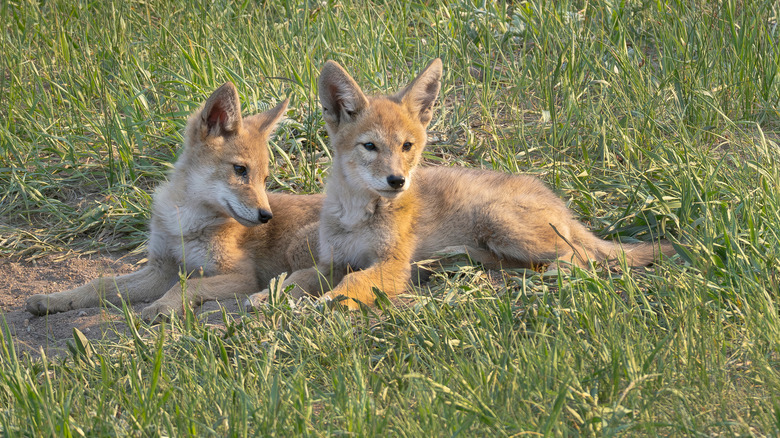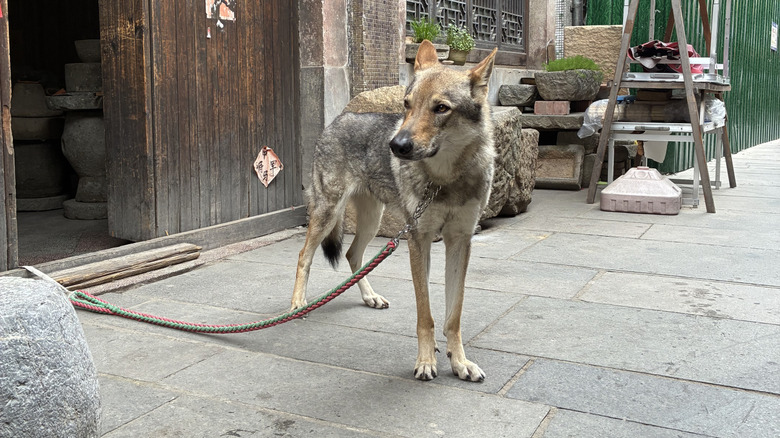Owning A Pet Coyote Is Nothing Like Having A Dog - Here's Why
Coyotes and dogs share many similarities, genetically and physically. Some dog breeds even look like coyotes, including certain Siberian huskies and German shepherds. These similarities have sparked questions like, what would it be like to own a pet coyote? Would the experience of raising a coyote pup be the same as raising a collie or Labrador puppy? What are the differences between wild and domestic dogs? One obvious difference is that the latter have been domesticated for centuries and are now affectionate, eager-to-please companions. Coyotes, on the other hand, are still wild, so their habitat and diet needs differ from those of domestic dogs.
The acquisition process is another major variation between these two animals. Wondering if owning a coyote is even legal? It is. In fact, this species is one of many exotic pets you can legally own, but there's a catch. As coyotes are wild animals, they fall under wildlife laws, so you can't legally own one without a permit. Michigan, Oklahoma, Florida, Texas, California, and South Dakota are some of the states that allow coyote ownership under certain circumstances. However, even in states that allow coyote ownership, there are certain requirements to consider — requirements you don't have to worry about with a domesticated dog.
You can't enclose or feed a coyote like you can a dog
Diet and habitat are two large components of pet ownership, but coyotes don't live the same or eat the same way that their canine cousins do. Many households keep their dogs indoors. Although some dogs enjoy being outdoors more than others, the average dog can live a happy, healthy, fulfilled life mostly indoors, but this isn't the case with coyotes.
These high-energy animals require a secure outdoor enclosure to meet their physical and mental needs. This enclosure should be at least 24 feet x 24 feet x 12 feet with a full top and bottom using welded wire, concrete, or wood. Even if pet coyotes didn't mind living indoors, they can't be potty trained. This means the owner would have to use diapers or pads for life, or stick to a strict outdoor potty schedule. Keeping the coyote outdoors 24/7 would obviously eliminate these needs.
A coyote's diet also differs from that of a domestic dog. About 90% of a coyote's diet should consist of raw meat, raw bones, liver, and other internal organs. Unless you can commit to this diet, have a permit, live in a state where coyote ownership is legal, and build a large outdoor enclosure, you're better off sticking with a dog for your pet.
Interested in reading about what it's like to own a feline wild animal as a pet? Check out what it's like owning a big cat as a pet.

